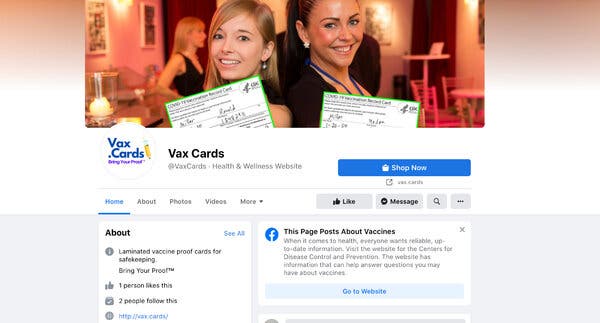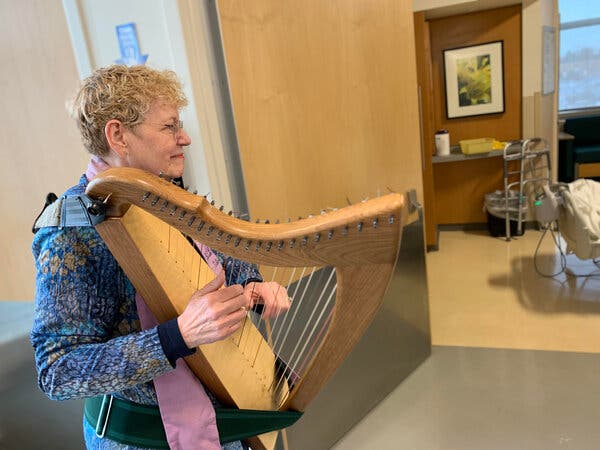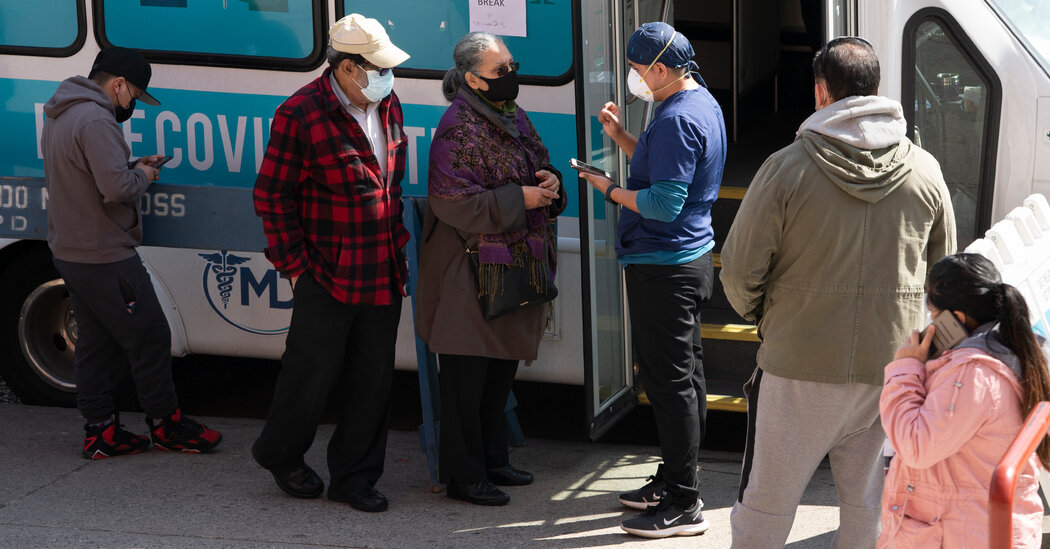Every spring, I and my colleague Dr. Nora Volkow, Director of NIH’s National Institute on Drug Abuse (NIDA), join with leaders across the country in the Rx Drug Abuse and Heroin Summit. Our role is to discuss NIH’s continued progress in tackling our nation’s opioid crisis. Because of the continued threat of COVID-19 pandemic, we joined in virtually for the second year in a row.
While the demands of the pandemic have been challenging for everyone, biomedical researchers have remained hard at work to address the opioid crisis. Among the many ways that NIH is supporting these efforts is through its Helping to End Addiction Long-Term (HEAL) Initiative, which is directing more than $1.5 billion to researchers and communities across the country.
Here’s a condensed transcript of our April 6th video dialogue, which focused on the impact of the COVID-19 pandemic on people struggling with substance use disorders and those who are trying to help them.
Collins: What have we learned so far through HEAL? Well, one thing HEAL is doing is tackling the need for pain treatments that help people avoid the risks of opioids. This research has uncovered new targets and therapeutics for different types of pain, including neuropathic, post-surgical, osteoarthritic, and chemotherapy induced. We’re testing implanted devices, such as electrodes and non-invasive nerve stimulation; and looking at complementary and integrative approaches, such as phone-based physical therapy for low back pain.
Through HEAL, we’ve launched a first-in-human test of a vaccine to protect against the harmful effects of opioids, including relapse and overdose. We’re also testing a tool that provides pharmacists with a validated opioid use disorder risk measure. The goal is to identify better who’s at high risk for opioid addiction and to determine what kind of early intervention could be put in place.
Despite COVID, many clinical studies are now recruiting participants. This includes family-based prevention programs, culturally tailored interventions for hard-hit American Indian populations, and interventions that address social inequities, such as lack of housing.
We are also making progress on the truly heart-breaking problem of babies born dependent on opioids. HEAL has launched a study to test the effectiveness of a new approach to care that measures the severity of a baby’s withdrawal, based on their ability to eat, sleep, and be consoled. This approach helps provide appropriate treatment for these infants, without the use of medication when possible. We’re also developing novel technologies to help treat neonatal opioid withdrawal syndrome, including a gently vibrating hospital bassinet pad that’s received breakthrough device designation from the FDA.
2020 was an extraordinary year that was tragic in so many ways, including lives lost and economic disasters that have fallen upon families. The resilience and ingenuity of the scientific community has been impressive. Quick pivoting has resulted in some gains through research, maybe you could even call them silver linings in the midst of this terrible storm.
Nora, what’s been at the forefront of your mind as we’ve watched things unfold?
Volkow: When we did this one year ago, we didn’t know what to expect. Obviously, we were concerned that the stressors associated with a pandemic, with unknowns, are factors that have been recognized for many years to increase drug use. Unfortunately, what we’ve seen is an increase in drug use of all types across the country.
We have seen an exacerbation of the opioid epidemic, as evidenced by the number of people who have died. Already, in the 12 months ending in July 2020, there was a 24 percent increase in mortality from overdoses. Within those numbers, there was close to a 50 percent increase in mortality associated with fentanyl. We’re also seeing an increase, not just in deaths from fentanyl and other synthetic opioids, but in deaths from stimulant drugs, like cocaine and methamphetamine. And the largest increases have been very much driven by drug combinations.
So, we have the perfect storm. We have people stressed to their limits by decreases in the economy, the loss of jobs, the death of loved ones. On the other hand, we see dealers taking the opportunity to bring in drugs such as synthetic opioids and synthetic stimulants and distribute them to a much wider extent than previously seen.
Collins: On top of that, people are at risk of getting sick from COVID-19. What have we learned about the risks of coronavirus illness for people who use drugs?
Volkow: It is a double whammy. When you look at the electronic health records about the outcomes of people diagnosed with substance use disorders, you consistently see an increased risk for getting infected with COVID-19. And if you look at those who get infected, you observe a significantly increased risk of dying from COVID.
What’s driving this vulnerability? One factor is the pharmacological effects of these drugs. Basically, all of the drugs of abuse that result in addiction, notably opioids, damage the cardiopulmonary system. Some also damage the immune system. And we know that individuals who have any disruption of cardiovascular health, pulmonary health, immune function, or metabolism are at higher risk of getting infected with COVID-19 and having adverse outcomes.
But there’s another factor that’s as important—one that’s very tractable. It is the way in which our society has dealt with substance use disorders: not actually treating them as a disease that requires intervention and support for recovery. The stigmatization of individuals with addiction, the lack of access to treatment, the social isolation, have all created havoc by making these individuals so much more vulnerable to get infected with COVID-19.
They will not go to a doctor. They don’t want to be stigmatized. They need to go out into the streets to get access to the drugs. Many times, they don’t have a choice of what drugs to take because they cannot afford anything except what’s offered to them. So, many, especially those who are minorities, end up homeless or in jails or prison. Even before COVID, we knew that prisons and jails are places where infections can transmit extraordinary rapidly. You could see this was going to result in very negative outcomes for this group of individuals.
Collins: Nora, tell us more about the trends contributing to the current crisis. Maybe three or four years ago, what was going straight up was opioid use, especially heroin. Then, fentanyl started coming up very fast and that has continued. Now, we are seeing more stimulants and mixing of different types of drugs. What is the basis for this?
Volkow: At the beginning of the opiate pandemic, mortality was mainly associated with white Americans, many in rural or semi-suburban areas of the Appalachian states and in New Mexico and Arizona. That has shifted. The highest increase in mortality from opioids, predominantly driven by fentanyl, is now among Black Americans. They’ve had very, very high rates of mortality during the COVID pandemic. And when you look at mortality from methamphetamine, it’s chilling to realize that the risk of dying from methamphetamine overdose is 12-fold higher among American Indians and Alaskan Natives than other groups. This should make us pause to think about what’s driving these terrible racial disparities.
As for drug combinations, many deaths from methamphetamine or cocaine—an estimated 50 percent—are linked to these stimulant drugs being combined with fentanyl or heroin. Dealers are lacing these non-opioid drugs with cheaper, yet potent, opioids to make a larger profit. Someone who’s addicted to a stimulant drug like cocaine or methamphetamine is not tolerant to opioids, which means they are going to be at high risk of overdose if they get a stimulant drug that’s laced with an opioid like fentanyl. That’s been contributing to the sharp rise in mortality from non-opioid drugs.
Collins: I’m glad you raised the issue of health disparities. 2020 will go down as a year in which our nation had to focus on three public health crises at once. The first is the crisis of opioid use disorder and rising mortality from use of other drugs. The second is COVID-19. And the third is the realization, although the problem has been there all along, that health disparities continue to shorten the lives of far too many people.
The latter crisis has little to do with biology, but everything to do with the way in which our society still is afflicted by structural racism. We at NIH are looking at this circumstance, realizing that our own health disparities research agenda needs to be rethought. We have not fully incorporated all the factors that play out in health inequities and racial inequities in our country.
You were also talking about how stimulants have become more widespread. What about treatments for people with stimulant use disorders?
Volkow: For opioid addiction, we’re lucky because we have very effective medications: methadone, buprenorphine, naltrexone. On top of that, we have naloxone, Narcan, that if administered on time, can save the life of a person who has overdosed.
We don’t have any FDA-approved medication for methamphetamine addiction, and we don’t have any overdose reversal for methamphetamine. At the beginning of this year, we funded a large clinical trial aimed at investigating the benefits of the combination of two medications that were already approved as anti-depressants and for the treatment of smoking cessation and alcoholism. It found this combination significantly inhibits the urge to take drugs and therefore helps people stay away from use of methamphetamine. Now, we want to replicate these findings, and to tie that replication study in with guidelines from the FDA on what is needed to approve our new indication for these medications. Why? Because then insurance can cover it, and that will increase the likelihood that people will get treated.
Another exciting possibility is a monoclonal antibody against methamphetamine that’s in Phase 2 clinical trials. If someone comes into the emergency room with an overdose of a combination of opioid and methamphetamine, naloxone often will not work. But this monoclonal antibody with naloxone may offer a greater likelihood of success.Another thing that’s promising is that investigators have been able to modify monoclonal antibodies so they stay in the bloodstream for a longer time. That means we may someday be able to use this passive immunization approach as a treatment for methamphetamine addiction.
Collins: That’s good to hear. Speaking of progress, is there any you want to point to within HEAL?
Volkow: There’s a lot of excitement surrounding medication development. We’re interested in developing antidotes that will be more effective in reversing overdose deaths from fentanyl. We’re also interested in providing longer lasting medications for treatment of opioid use disorders, which would improve the likelihood of patients being protected from overdoses.
The Justice Community Opioid Innovation Network (JCOIN) is another HEAL landmark project. It involves a network of researchers that is working with judges and with the workers in jail and prison systems responsible for taking care of individuals with substance use disorders. Through this network, we’ve been able to start to harmonize practices. One thing that’s been transformative in the jail and prison system has been the embracing of telehealth. In the past, telehealth was not much of a reality in jails and prisons because of the fear of it could lead to communications that could perhaps be considered dangerous. That’s changed due to COVID-19. Now, telehealth is providing access to treatment for individuals in jail and prison, many of them with substance use disorders.
Also, because of COVID, many nonviolent individuals in jails and prisons were released. This gives us an opportunity to evaluate how best to help such individuals achieve recovery from substance use disorders. Hopefully we can generate data to show that there are much more effective strategies than incarceration for dealing with substance use disorders.
The HEALing Communities Study, involves Massachusetts, New York, Ohio, and Kentucky—four of the states with the highest rates of mortality from overdoses from the inception of the opioid epidemic. By implementing a battery of interventions for which there is evidence of benefit, this ambitious study set out to decrease overdose mortality by 40 percent in two years. Then, came COVID and turned everything upside down. Still, because we consolidated interactions between agencies, we’ve been able to apply support systems more efficiently in those communities in ways that have been very, very reinforcing. Obviously, there’ve been delays in implementation of interventions that require in-person interactions or that involve hospital emergency departments, which have been saturated with COVID patients.
We’ve learned a lot in the process. I may be too optimistic, but I do believe that we can stay on goal.
Collins: Now, I’d like to transition to a few questions from people who subscribe to the HEAL website. Announced at this meeting three years ago, the HEAL Initiative involves research participants and patients and stakeholders—especially people who have lived experience with pain, addiction, or both.
Let’s get to the first question: “What is NIH doing through HEAL to address the stigma that prevents people who need opioid medications for treatment from getting them?”
Volkow: A crucial question. As we look at the issue of stigma, we need to recognize that there are structural issues in how our society is prioritizing the importance of substance use disorders and the investments devoted to them. And we need to recognize that substance use disorder doesn’t exist in isolation; it is frequently comorbid with mental illness.
We need to listen. Some of the issues that we believe are most problematic are not. We need to empower these communities to speak up and help them do so. This is probably one of the most important things that we can do in terms of addressing stigma for addiction.
Collins: Absolutely. The HEAL Initiative has a number of projects that are focusing on stigma and coming up with tools to help reduce this. And here’s our second question: “In small communities, how can we provide more access to medications for opioid use disorder?”
Volkow: One project funded through HEAL was to evaluate the effectiveness of community pharmacies for delivering buprenorphine to individuals with opioid use disorder. The results show that patients receiving buprenorphine through community pharmacies in rural areas had as good outcomes as patients being treated by specialized clinicians on site.Another change that’s made things easier is that in March 2020, the DEA relaxed its rules on how a physician can prescribe buprenorphine. In the past, you needed to go physically to see a doctor. Now, the DEA allows a patient to be initiated on buprenorphine through telehealth, and that’s opened the possibility of greater access to treatment in rural communities.
My perspective is let’s look at innovative ways of solving problems. Because the technology is changing in so many ways and so rapidly, let’s take advantage of it.
Collins: Totally with you on that. If there’s a silver lining to COVID-19, it’s that we’ve been forced to take stock of the ways we’ve been doing things. We will learn from this pandemic and change the way we approach so many things in health and medicine as a result. Certainly, opioid use disorder ought to be very high on that list. Let’s move on to another question: “What is the HEAL initiative doing to promote prevention of opioid use?”
Volkow: This is where the HEAL initiative is aiming to provide alternative treatments for the management of pain that reduce the risk of addiction.
Then there’s the issue of prevention in people who start to take opioids because they either want to get high or escape. With the COVID pandemic, we’ve seen increases in anxiety and in depression. Those are factors that can put a teenager or young adult on a trajectory for higher risk of substance use disorders.
So, what is HEAL doing? There is prevention research specifically targeted, for example, at the transition from adolescence to young adulthood. That is the period of greatest vulnerability of uptake of opioids, or drugs of misuse. We’re also targeting minority groups that may be at very, very high risk. We want to be able to understand the factors that make them more vulnerable to tailor prevention interventions more effectively.
Collins: Today, we’ve shared some of the issues that NIH is wrestling with in its efforts to address the crisis of opioid misuse and overdose, as well as other drugs that are now very much part of the challenge. To learn more, go to the HEAL website. You can also send us your thoughts through the HEAL Idea Exchange.
These developments give me hope in the wake of a very difficult year. Clearly, we still have the capacity to work together, we are resilient, and we are determined to put an end to our nation’s opioid crisis.
Volkow: Francis, I want to thank you for your incredible leadership and your support. I hope the COVID pandemic will bring forth a more equitable system, in which all people are given the chance for resilience that maximizes their life, happiness, and productivity. I think science is an extraordinary tool to help us do that.
Links:
Video: The 2021 Rx Drug Abuse & Heroin Summit: Francis Collins with Nora Volkow (NIH)
COVID-19 Research (NIH)
Helping to End Addiction Long-term (HEAL) Initiative (NIH)
HEAL Idea Exchange (NIH)
National Institute on Drug Abuse (NIH)
Rx Drug Abuse & Heroin Summit, A 2021 Virtual Experience
Read more →







